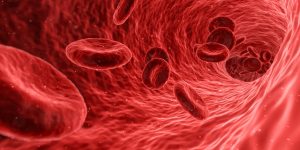Anemia is a medical condition whereby a person has a low number of red blood cells. This condition can come as a result of other conditions and therefore cannot be termed as a disease. Currently there are 400 types of anemia and they are categorized into 3.
- Anemia caused by blood loss
- Anemia caused by decreased number of red blood cells.
- Anemia caused by the destruction of red blood cells.
Anemia currently affects more than 3 million Americans and an estimated 1.62 billion people, globally.
Anemia is not strictly a disease, but a disorder. It is often a byproduct of other diseases that either interfere with the body’s ability to produce healthy red blood cells or abnormally increase red blood cell breakdown or loss
Red blood cells are critical to our body’s well-being. They carry hemoglobin, a complex protein that contains iron molecules.
The main function of these molecules is to carry oxygen from the lungs to the rest of the body.
If there are not enough red blood cells, an individual may experience symptoms such as feeling tired or weak.
Sourced from: http://www.medicalnewstoday.com/articles/158800.php
 Most of the times the subject of anemia is treated lightly. Anemia is a serious condition that if left untreated could lead straight to death. This of course happens after one shows very serious symptoms.
Most of the times the subject of anemia is treated lightly. Anemia is a serious condition that if left untreated could lead straight to death. This of course happens after one shows very serious symptoms.
Left untreated, anemia can cause many health problems, such as:
- Severe fatigue. When anemia is severe enough, you may be so tired that you can’t complete everyday tasks.
- Pregnancy complications. Pregnant women with folate deficiency anemia may be more likely to experience complications, such as premature birth.
- Heart problems. Anemia can lead to a rapid or irregular heartbeat (arrhythmia). When you’re anemic your heart must pump more blood to compensate for the lack of oxygen in the blood. This can lead to an enlarged heart or heart failure.
- Some inherited anemias, such as sickle cell anemia, can be serious and lead to life-threatening complications. Losing a lot of blood quickly results in acute, severe anemia and can be fatal.
Sourced from: http://www.mayoclinic.org/diseases-conditions/anemia/symptoms-causes/dxc-20183157
The kind of treatment administered to anemic patients is determined by the severity of their condition. Pregnant women are given iron supplements for treatment and preventative measures. There are those Procrit o Epogen injections to boost their red blood cell level.
Medical treatment of anemia varies widely and depends on the cause and the severity of anemia.
If anemia is mild and associated with no symptoms or minimal symptoms, a thorough investigation by a doctor will be done in the outpatient setting (doctor’s office). If any cause is found, then appropriate treatment will be started. For example, if anemia is mild and is found to be related to low iron levels, then iron supplements may be given while further investigation to determine the cause of the iron deficiency is carried out.
On the other hand, if anemia is related to sudden blood loss from an injury or a rapidly bleeding stomach ulcer, then hospitalization and transfusion of red blood cells may be required to relieve the symptoms and replace the lost blood. Further measures to control the bleeding may occur at the same time to stop further blood loss.
Blood transfusion may be required in other less critical circumstances as well. For example, an individual who is receiving chemotherapy for a cancer may be expected by the treating physician to have bone marrow problems related to the chemotherapy. Therefore, the doctor may check blood counts routinely, and if the levels get to a low enough level, he or she may order a red blood cell transfusion to help with the symptoms of anemia.
Sourced from: http://www.emedicinehealth.com/anemia/page6_em.htm